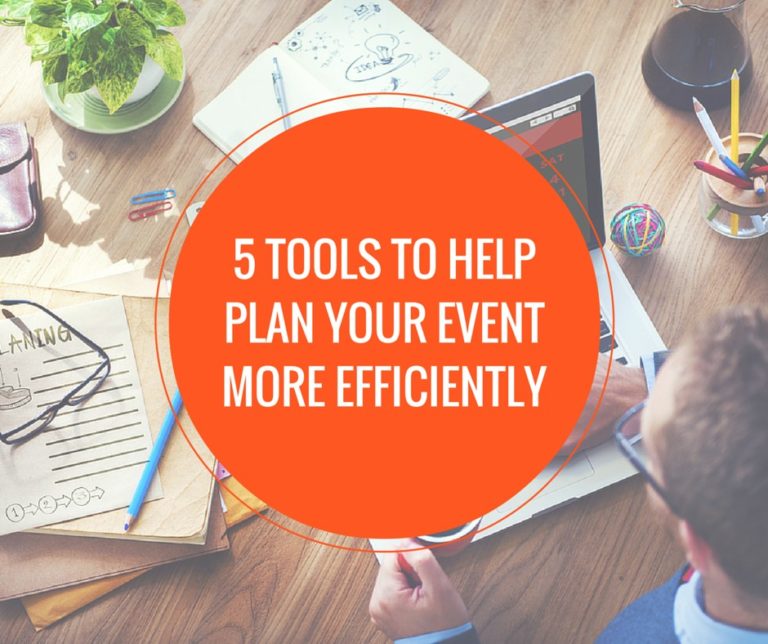The future of the events industry is bright. In 2020 the global events industry was valued at $887 billion. By 2028, the market value is expected to reach nearly $2.2 trillion.
Event management continues to evolve, thanks in large part to innovative technological advancements. One constant, however, is the need for an effective event registration strategy. After all, holding an engaging and profitable event starts with successful attendee registration. Not only does the registration process serve as an attendee’s first impression of an event, but when done properly, you can attract a wider audience and set your event up for success.
What Is an Event Registration Strategy?
An event registration strategy is a set of tactics used by event planners to ensure good event turnout. With a proper event registration strategy, you can generate ticket sales, boost engagement, and grow your brand awareness.
Why Is Having an Event Registration Process Important?
A successful event comes down to how well you execute your event description and registration process. Having an established process conserves your resources, deepens insight into your event, and improves the attendee experience.
A properly-designed event registration process will give your team a better understanding of which tasks can be automated. As part of any registration management, data and forms must be opened, entered, combined, and sorted into records. This procedure might be time-consuming and energy-draining if done manually, but event management software simplifies and streamlines the process. Your team will benefit, to be sure, but so will attendees. By creating an enjoyable event registration process, attendees can sign up without having to manually fill out tedious, often duplicated form fields.
An efficient event registration process automates tasks like managing forms, sending out promotional emails, and receiving and tracking payments. The time and effort saved automating these repetitive tasks can be used to carry out other useful activities like contacting sponsors and replying to registrants’ queries quickly to make your event successful.
When you create an event registration process, you can centralize data management. With the right tools and procedures, you can collect attendees’ data and payments and run pre- and post-event reports to gain valuable insight.
By using an event registration system, you can simplify your marketing efforts, too. For example, you can email all attendees simultaneously. This method helps you notify attendees of future events and effortlessly track their open rates and responses.
How To Create an Event Registration Strategy in 6 Steps
There are many ways in which to go about building an event registration strategy, but there are six well-established steps you should follow for best results.
1. Know Your Event Goals and Budget
Before you begin, you need to establish your goals, constraints, and vision. What do you hope to achieve from your event? For example, you might wish to improve brand recognition, earn profits from ticket sales, or provide valuable, rewarding content to your customers or prospects.
Knowing your event budget is also important. Your budget will determine what you can include in your event, which aspects to scale back, and which ideas to expand upon.
With the use of a proper online event registration system, you will be able to automate tasks related to your event. This will give you more time to focus on other important aspects, such as promoting your event, ensuring the quality of your event, and making sure that everything runs smoothly on the day of the event.
2. Decide On Your Event Experience: Hybrid vs. Virtual vs. In-Person Events
An exceptional attendee experience can elevate your customer loyalty and company brand, as well as stimulate continued engagement for upcoming events. To create this kind of experience, you must know your target audience’s needs and preferences.
What kind of experience will they benefit from most? Virtual, hybrid, and in-person events provide different benefits and drawbacks, so it’s important to choose the experience that best suits your audience.
A virtual event is held purely online. If your audience is spread out geographically, or if the content of your event works best digitally, be sure to choose virtual event management software that offers a great attendee experience.
In-person events mean attendees meet face-to-face. To enhance the attendee experience for in-person events, be sure to find a comfortable, safe venue, and offer flexible, on-site check-in options.
Hybrid events, as their name suggests, combine elements of both virtual and in-person events.
3. Research Your Audience and Create Content for Prospective Attendees
Researching your target audience helps you learn more about your attendees. With the information you learn about prospective attendees, you can send targeted marketing campaigns that boost your sign-ups.
To conduct successful audience research, you can:
- Check out relevant Facebook groups
- Examine the demographics of previous attendees
- Study your competitors’ content, events, and marketing strategies
4. Choose a Good Event Registration Platform To Streamline the Registration Process
The success of your event registration will depend on the type of event software you use. Select an advanced event registration software like the solution offered by Events.com that comes with the following features:
- Presentation tools
- Networking capabilities
- Ticketing functionality
- Sponsorship opportunities
- Communication tools
- Data-gathering capabilities
- Integration with other tools
- Branding options
- Audience interaction features
- Recording capabilities
- Customer support tools
5. Implement a Marketing Strategy To Find Event Registrants
Organizing an event can be time-consuming, energy-draining, and costly. To ensure a good return on your investment, you’ll need to get people to register for your event. Your event marketing strategy will play a key role in attracting registrants. The most effective strategies to implement and attract event registrants include:
- Leveraging social media marketing
- Creating targeted, useful content
- Offering sign-up incentives
- Working with influencers
6. Know Your Numbers and Track the Success of Your Registration Strategy
After the event, it’s important to record and review your performance, so you can learn from it and hone your strategy moving forward. Analyze your post-event data to determine how many people registered for your event and which sessions or aspects of the event were best attended.
By taking the time to study your events, you will gain valuable insight into your target audience’s needs and wants. This information can be used to plan, promote, and successfully host future events.
Discussion: Key Registration Tips for Your Event Strategy
The success of your event largely depends on the number of people who register to attend it. To boost your event registration, consider the following tips:
Allow multiple registrations and payment options
If you’re looking to hold a large event, it’s wise to allow additional registration options. These can include:
- Session categories: Allow registrants to reserve a seat in breakout sessions, sign up for specific tracks, or select from other event-specific options.
- Registration choices: Let attendees purchase add-ons like meals, drinks tickets, souvenirs, or golf green fees.
Provide attendees with the ability to pay for their ticket using a variety of payment options, as well. This is especially important for virtual events, where registrants from different regions can sign up and attend. Some payment systems may not be available in other countries. To allow everyone to successfully register for your event, provide multiple payment options, such as credit cards, PayPal, bank transfers, cash payment vouchers, and digital wallets.
Develop a mobile-first strategy
When it comes to accessing the internet and receiving communication, smartphones are the preferred device for many people. Ensure the virtual event platform you intend to use is mobile-friendly. Participants must be able to access the platform and register using their mobile devices. If your event platform is not mobile-ready, you’ll miss out on potential attendees.
Have a user-friendly event website
Give potential attendees a positive user experience by building a responsive, user-friendly site. Your event website should have a user-friendly interface with features like an intuitive menu dropdown, clean copy, visual aids (like a registration button) to more quickly find important information, and minimal distractions. You want potential attendees to be able to navigate the site easily. If they can’t, they’ll most likely abandon their efforts, and you’ll lose out on event registrations.
Integrate your event strategy with email marketing
Participants are nearly always expected to provide their email during event registration. Capture these emails and use them in conjunction with your marketing efforts — provided they comply with data regulations. For example, you can send personalized emails to attendees to communicate event information, updates, and promotions. Email marketing, ultimately, enhances the attendee experience and boosts your brand recognition.
How Are You Preparing for a Successful Event Registration?
Organizing a successful event is not easy, but with the right tools, mindset, and tips, you can develop a strong event registration process.
Properly planning your event will require careful attention to logistics, content discovery, and event promotion. Develop a clear roadmap to get an idea of what needs to happen for you to achieve your event goals and objectives.
The registration process is often the first impression a person will have with your event (and sometimes your brand), so it’s crucial that you put your best foot forward. The tasks can seem overwhelming at first, from identifying your target audience and promoting your event to registering participants. Luckily, Events.com’s event management solution will teach you how to effectively set up registration for an event. Combine that with the above event registration strategies, and you’re all set to hold a successful and memorable event.






